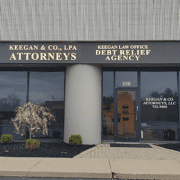Will I Lose My Home in Bankruptcy?
Home ownership is part of the American Dream. So, what happens when you achieve this dream and run into financial difficulty? In most cases you can keep your home even if you decide to file for personal bankruptcy.
CHAPTER 7 BANKRUPTCY AND YOUR HOME
Chapter 7 bankruptcy also referred to as straight bankruptcy or liquidation bankruptcy is a process to discharge your unsecured debts. Thankfully, in Ohio there is a large homestead exemption. As long as your equity in your home does not exceed this exemption the bankruptcy court cannot sell your home. As of 2023, this exemption is approximately $145,000 per individual and $290,000 per couple. To keep your home in Chapter 7 you should be current on your house payments. As long as you are current and do not have equity beyond the exemption amount you will be able to keep your home. If you wish to keep your home you will typically sign a reaffirmation agreement. This document makes your mortgage non-discharged and your mortgage holder will continue to report your payments to the credit reporting agencies.
CHAPTER 13 BANKRUPTCY AND YOUR HOME
If you have too much equity in your home or are behind on your mortgage payments you can save your home through a Chapter 13. A Chapter 13 bankruptcy is a repayment plan. If your home is in foreclosure you can file Chapter 13 up to the moment the sheriff auctions your home. You will then make your regular house payment and your arrears payment through the Chapter 13 Trustee. Once you complete your case you will be current on your home and will then make your payment directly to your lender.
MORE INFORMATION
Call 513-752-3900 to schedule a free consultation. We will give you plenty of time to discuss your individual circumstance with an experienced bankruptcy lawyer. We offer fair fees, payment plans, easy parking and two convenient locations: Eastgate, Clermont County & Middletown, Ohio. Since 1992, Keegan & Company Attorneys has helped thousands of your neighbors protect assets and gain financial peace of mind.















